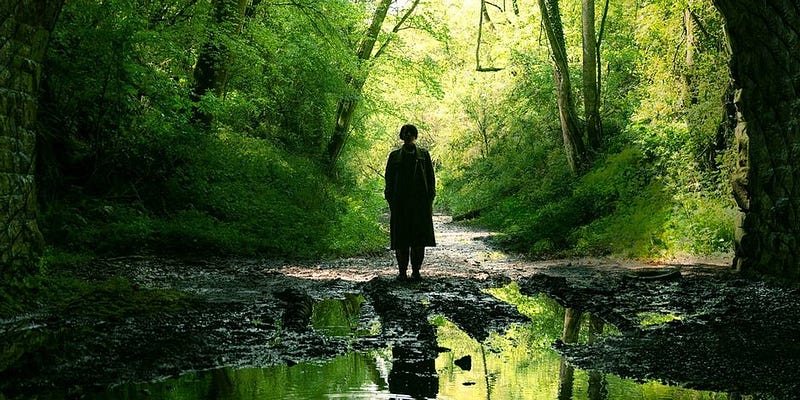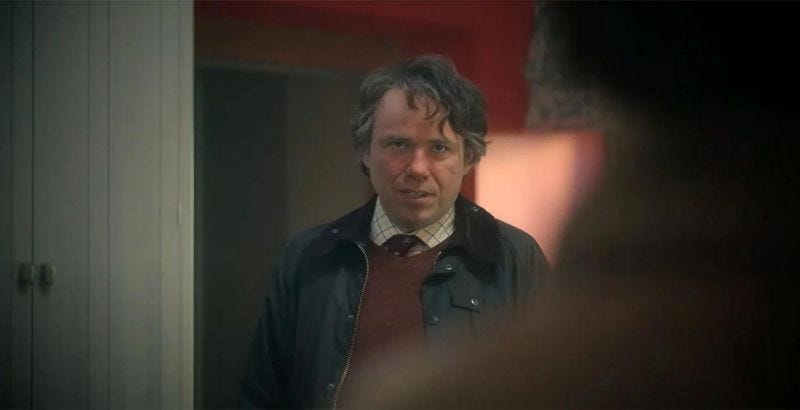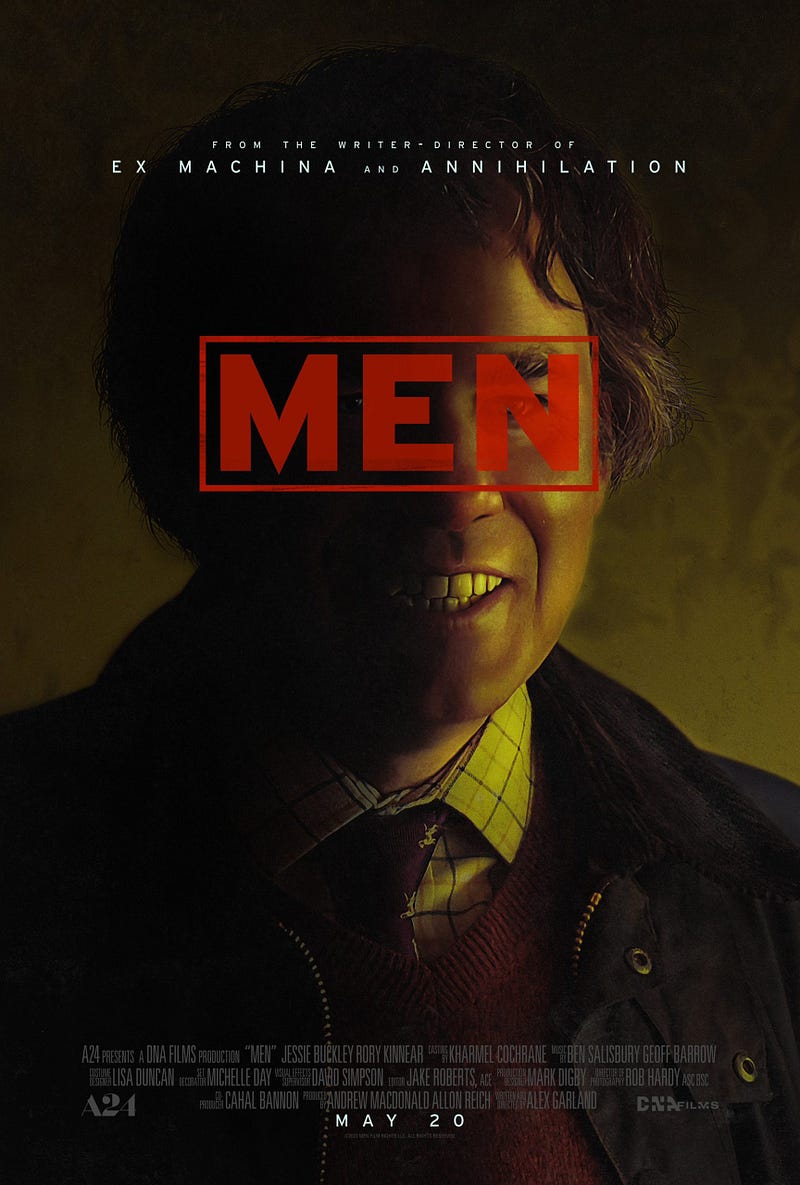A muddled affair is saved by the outstanding performance of Rory Kinnear

With a title like Men, you could easily assume that Alex Garland’s latest film is looking to lay down a little social commentary. You wouldn’t be wrong, but like his previous works (Ex Machina, Annihilation), the focus here is again on existential contemplation—finding yourself as others seek to define or control you.
After a tragic event, Harper (Jessie Buckley) rents herself an idyllic manor house in the English countryside, a retreat and a place to heal. Welcomed by the amiable owner Geoffrey (Rory Kinnear), she suffers his mildly antiquated banter before getting familiar with the picturesque interior. A walk in the surrounding woods is next, and all is going swimmingly until Harper encounters a figure in an abandoned rail tunnel. As she returns to the house, she gets a clearer view of a naked man (also Kinnear) following her. After an effort to get inside, the man is eventually led away by a local policeman (Also also Kinnear). Over the next day, Harper has further encounters with local men, from the local priest (guess who) to a young schoolboy (ya boi again), that leave her increasingly unsettled. By now, you know where this film seems to be going. Something untoward is happening in this village and perhaps moreso in Harper’s mind as a place for calm and contemplation twists into a perturbing situation where she becomes cornered by these men and her own trauma.

For the Brits amongst us, so far so shades of The League of Gentlemen: a Python-esque folk horror TV series that features a trio of men donning wigs, prosthetics, and often dresses, to play the various inhabitants of a village who don’t get on well with outsiders (“They’re not local”). After the cerebral sci-fi of his previous efforts, Men feels like a tangible shift for Garland into something more primal, a home invasion and psychological thriller set within a surreal folk horror—one that gets delightfully British at times. The story wraps around themes of power and control to build an unnerving tale that speaks to recent social events. Some horror tropes remain (flickering security lights, silly and sinister vibes from country archetypes), while others are flipped on their heads. First and foremost, we have the unnerving sight of a village of men who all share the same face, something Harper is seemingly unaware of. Is she blinded by her grief, or is this emblematic of how for some, one face blends into another when faced with waves of misogyny every single day? These denizens of the village deliver various shades of disrespect, gas-lighting, manipulation, and outright abuse, and this is all compounded by the trauma Harper brought with her being rooted in similar toxicity. Harper’s trauma stems from her husband James (Paapa Essiedu), a burden of guilt, and how men often blame women for their own flaws or mistakes.
Buckley gives Harper an understandably bitter edge. She is a guarded, wounded, and sympathetic soul, despite a rather sparse character treatment within the script. Kinnear—all of him—is incredible. He elevates the film whenever he is onscreen, with each of his “men” tying together yet coming with their own distinct mannerisms. From bumblingly quaint, to coldly menacing, to wildly monstrous, he sets the tone of the film, ramping up the tension and physicality of the piece.

While the intent and ingredients are there for a genre classic, Garland veers between two extremes of lacking subtlety or being overly ambiguous, and this hampers the film. His touching on religion—notably pagan worship with altars and apple trees—is symbolically superficial and goes nowhere. A deliberate blurring of events swirling within and around Harper further muddies the messaging. There is much that will leave most audiences baffled or bemused. The film is sure to resonate differently with different demographics, and its ambiguity will surely feed into that. But here it feels more like Garland knows what he wants to say but pulls back from actually saying it.
Despite this, there are scenes where Garland’s vision stands out. An echo scene at a rail tunnel captivates in the moment and also puts an imprint on much of the rest of the film. There’s also a body horror-fueled finale that kicks off with a scene involving a letterbox and knife that will go down in infamy. The film looks superb, with cinematographer Rob Hardy verdantly framing the English countryside and infusing an ever-growing sense of dread. Geoff Barrow and Ben Salisbury’s discordant score, often fueled by a leitmotif stemming from an eerie sampling of Harper’s vocals, also adds to the uneasy feeling that permeates the film. But for all the moments that standout, the rawness of Buckley’s work, and the immense contributions of Kinnear, Men ultimately feels unsatisfying, more a fever dream than a fully fleshed out tale, one that is calling out for a firmer grasp on the narrative from Garland. Though Men is provocative and gnarly fare, it feels just too nebulous to really make a mark.
Men is in theaters on May 20.




